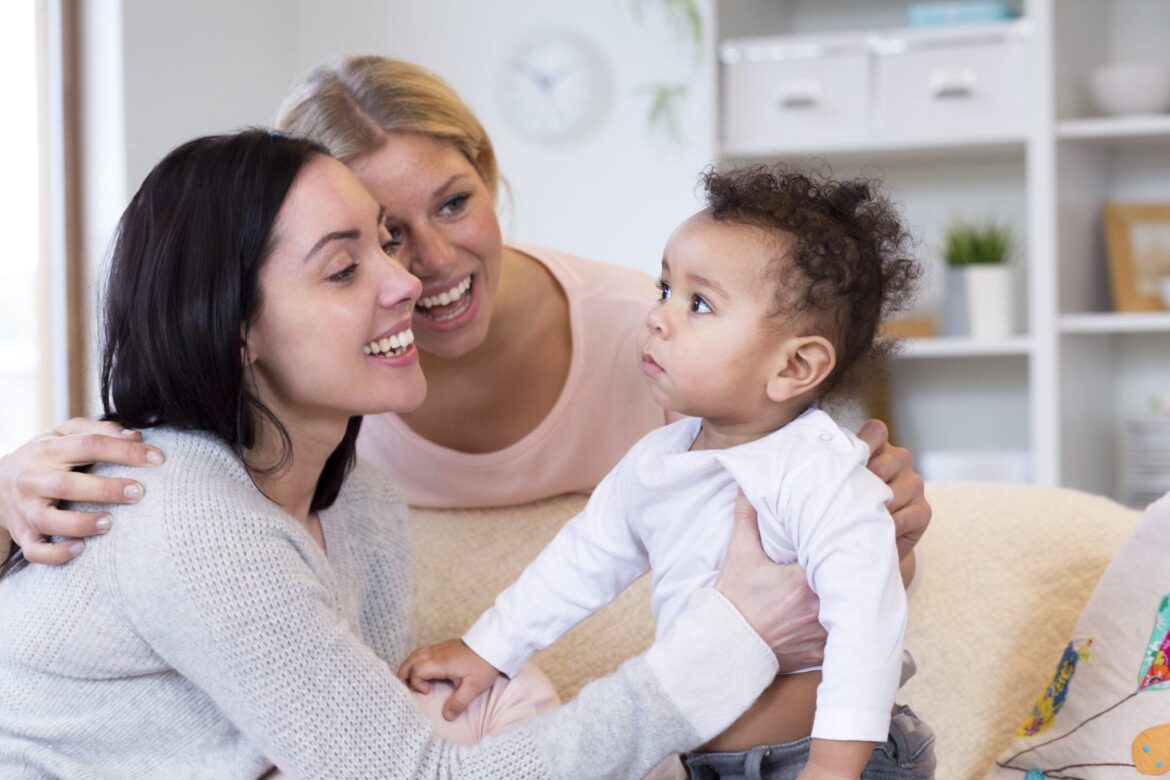Deciding to start a family of your own is a huge decision for any couple to make.
For heterosexual couples, the path to parenthood is typically more straightforward. But for same-sex couples, becoming a mother or father isn’t quite as easy.
Read on to meet five lesbians and one gay man who are facing the challenges of becoming parents or remaining childfree.
Natasha (30)
Natasha and her ex-girlfriend Kay broke up half a year ago. With three years spent together, it was the longest and most serious relationship Natasha has had so far. The main reason for splitting up was that Natasha didn’t want to have children whereas Kay did.
Recently, Natasha has decided that she is ready to start dating again. She thought she would try online dating, but as she began to set up her profile, she suddenly got stuck. One of the questions asked whether she wanted to have children. She doesn’t, so ‘Yes’ is clearly not an option. ‘No’ may put many interesting women off, and so can ‘Prefer not to say’.
It seems like selecting ‘Undecided’ is the best solution, but Natasha fears that if Kay comes across her profile—which isn’t unlikely given the small local lesbian community—it will be confusing and upsetting.
Sally (31) and Erica (38)
Sally and her partner Erica have been together for six years. Erica has recently raised the issue of parenthood, admitting that she would like to have a child—something Sally had assumed wasn’t going to be part of their relationship.
Erica is at the age when her fertility has already begun to decline; Sally has only just started a new job. For Sally, it seems like it is not the right time for the couple to have a child—but there’s never going to be the right time.
Sally is aware that, unlike her heterosexual colleagues, she can’t come to work announcing to her boss that she’s expecting a baby. It’s impossible for her to get pregnant ‘by accident’ and any attempt at becoming a parent requires a good deal of planning. She is worried about the impact having a child would have on her career, yet Erica’s parenting desire seems to have triggered hers.
Patrick (28)

Img Source: sbs.com.au
Patrick is currently single. Thinking about his future, he hopes he will meet someone who, like him, would like to have children.
However, the reality of becoming a parent as a gay man isn’t straightforward. Although there seem to be a number of options to pursue parenthood, each one of them is complicated.
Patrick would ideally like to have a child ‘of his own’. If he wants to have a biological child, Patrick will need to find either a female friend he could co-parent with or a surrogate who could carry a baby for him.
At the moment, he can’t think of a friend he could trust enough to share parenting—and who would be willing to do it. He’s also uncertain if he will ever be able to afford surrogacy—this would probably need to involve going abroad, with high costs of legal arrangements and fertility treatment.
Becky (25) and Amy (27)
Becky and her girlfriend Amy have been together for a year. Early on in their relationship, it became clear that they both wanted to have children in the foreseeable future.
Since the couple would like to experience pregnancy, as well as being able to care for their children from the start, they plan to become parents through insemination. Becky’s best friend, Guy, whom she’s known since childhood, has offered to be the couple’s sperm donor. Guy himself isn’t interested in parenthood.
Becky is unsure about accepting Guy’s offer. She knows and gets along with Guy’s parents. If Becky and Amy conceive a child with sperm from Guy, their baby will probably be the only grandchild Guy’s mum and dad will ever have. Becky wouldn’t have the heart to deny them contact with the child, but she also has mixed feelings about the unusual family relationship this arrangement would create.

Img Source: psychcentral.com
For more on same-sex relationships read
Dealing with disapproval as a same-sex couple
Being in your first same sex relationship
First UK gay marriages take place
The case studies come from a research project ‘Future Intimacies’, conducted by Robert Pralat in the Department of Sociology at the University of Cambridge. The study explores what a young generation of non-heterosexual people in Great Britain think about becoming a parent. Real names have been replaced with pseudonyms.

